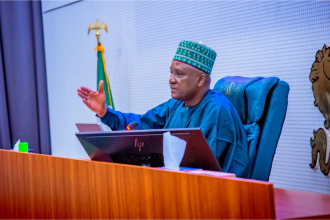According to reports, the Nigerian government will soon approve a law that will acknowledge the use of Bitcoin and other cryptocurrencies as a way to stay up with “global standards.”
Following an interview with Chairman of the House of Representatives Committee on Capital Markets Babangida Ibrahim, the news was revealed on December 18 by Nigerian-based Punch Newspapers.
The local Securities and Exchange Commission will be able to “recognize bitcoin and other digital monies as capital for investment,” according to the article, if the Investments and Securities Act 2007 (Amendment) Bill is passed into law.
Ibrahim emphasized how important it is for Nigeria to stay current with changes and trends in the capital markets:
“Like I said earlier during the second reading, we need an efficient and vibrant capital market in Nigeria. For us to do that, we have to be up to date [with] global practices.”
The publication of the report comes nearly 24 months after Nigeria outlawed cryptocurrency trading in February 2021. At the time, the Central Bank of Nigeria (CBN) had directed local cryptocurrency exchanges and service providers to halt operations as well as mandated that banks close the accounts of any individuals or entities found to be trading.
However, Ibrahim, the president of Nigeria from 1985 to 1993, believes that the law’s passage does not represent a complete reversal of the ban but rather a secondary review of the CBN’s authority:
“It is not about [the] lifting of the ban, we are looking at the legality: what is legal and what is within the framework of our operations in Nigeria. When cryptocurrency was initially banned in Nigeria, the CBN discovered that most of these investors don’t even use local accounts. So, they are not within the jurisdiction of the CBN. Because they are not using local accounts, there is no way the CBN can check them,” he explained.
Nigeria’s Investments and Securities Act 2007 will undergo changes if the legislation is approved.
The bill will specify the regulatory responsibilities of the Central Bank of Nigeria and Nigeria’s Securities Exchange Commission (SEC) on matters connected to digital currencies in addition to giving legal recognition to Bitcoin and other cryptocurrencies, according to the article.
The regulation also comes at a time when Nigerians have showed little to no interest in the eNaira, the country’s digital currency issued by the central bank, which had only a 0.5% adoption rate in October, 12 months after its introduction.












